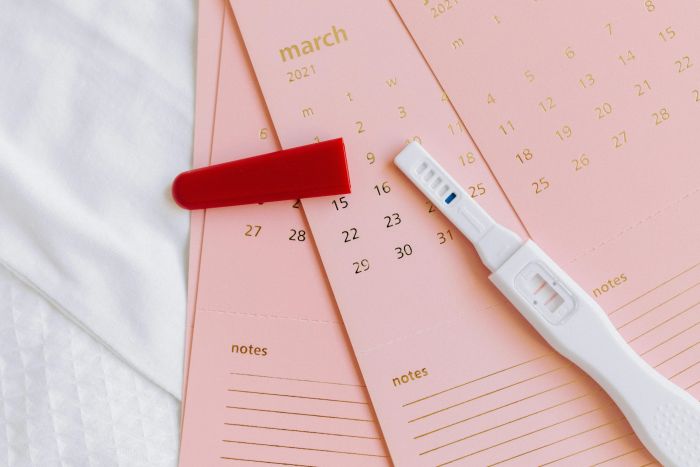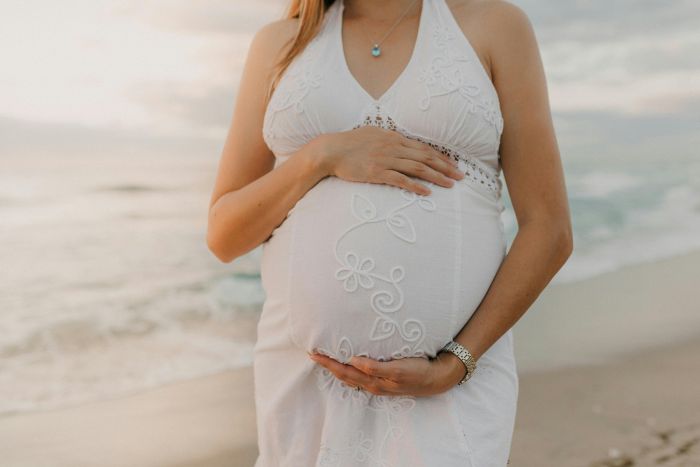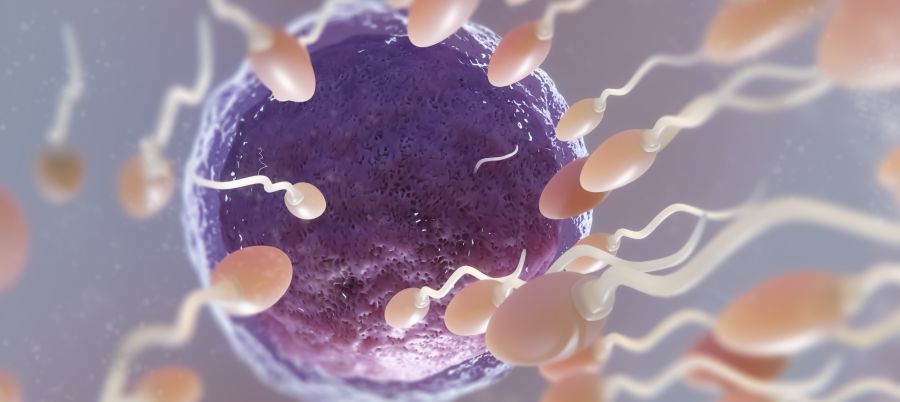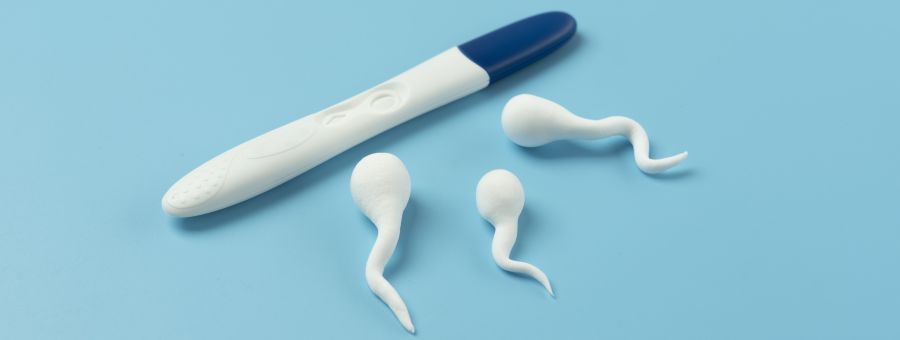Your age affects your fertility, but it doesn't define your journey to parenthood. Understanding how age impacts your reproductive health empowers you to make informed decisions about your fertility timeline and treatment options.
How Age Affects Female Fertility
Your fertility naturally changes as you age, and understanding these changes helps you plan your family-building journey more effectively. The most significant factor is your ovarian reserve - the number and quality of eggs remaining in your ovaries.
Women are born with all the eggs they'll ever have, approximately 1-2 million at birth. By puberty, this number decreases to about 400,000, and it continues declining throughout your reproductive years. This natural process accelerates after age 35, leading to what fertility specialists call the "fertility cliff."
| Age Range | Monthly Pregnancy Chance | Egg Quality | Miscarriage Risk |
|---|---|---|---|
| 20-24 | 25-30% | Highest | 10-15% |
| 25-29 | 25-30% | High | 10-15% |
| 30-34 | 20-25% | Good | 15-20% |
| 35-39 | 15-20% | Declining | 20-35% |
| 40-44 | 5-10% | Lower | 35-50% |
| 45+ | 1-3% | Very Low | 50%+ |
According to the American College of Obstetricians and Gynecologists, fertility begins to decline gradually around age 32, with a more rapid decline after age 37 (ACOG, 2020). This doesn't mean pregnancy becomes impossible, but it may take longer to conceive naturally.
Male Fertility and Age: What You Need to Know
While male fertility doesn't decline as dramatically as female fertility, age still plays a role in reproductive health for men. Sperm quality, including motility and DNA integrity, gradually decreases with age.
| Age Range | Sperm Quality | Potential Impact |
|---|---|---|
| Under 35 | Optimal | Minimal age-related effects |
| 35-40 | Good | Slight decrease in motility |
| 40-45 | Moderate decline | Increased DNA fragmentation |
| 45+ | More significant decline | Higher risk of genetic abnormalities |
Research shows that men over 40 may experience longer time to conception and slightly increased risks of pregnancy complications. However, many men remain fertile well into their later years with appropriate sperm quality optimization.
Age-Related Fertility Challenges
Understanding the specific challenges that come with age helps you prepare for your fertility journey and explore appropriate treatment options.
Decreased Ovarian Reserve
Your AMH (Anti-Müllerian Hormone) levels provide insight into your remaining egg supply. Lower AMH levels indicate fewer eggs available for fertilization, which may require more aggressive treatment approaches or consideration of donor eggs.
Chromosomal Abnormalities
As eggs age, they become more susceptible to chromosomal errors during division. This increases the risk of conditions like Down syndrome and contributes to higher miscarriage rates in older mothers.
| Maternal Age | Risk of Down Syndrome | Risk of Any Chromosomal Abnormality |
|---|---|---|
| 25 | 1 in 1,250 | 1 in 476 |
| 30 | 1 in 952 | 1 in 385 |
| 35 | 1 in 378 | 1 in 192 |
| 40 | 1 in 106 | 1 in 66 |
| 45 | 1 in 30 | 1 in 21 |
Pregnancy Complications
Advanced maternal age is associated with increased risks of gestational diabetes, high blood pressure, and placental complications. However, with proper prenatal care, many women over 35 have healthy pregnancies and babies.
Fertility Treatment Options by Age
Your treatment options depend on various factors including your age, overall health, and specific fertility challenges. Here's what you can expect at different life stages.
Treatment for Women Under 35
If you're under 35, you typically have more treatment options and higher success rates. Intrauterine insemination (IUI) may be recommended as a first-line treatment, especially for unexplained infertility or mild male factor issues.
| Treatment Type | Success Rate (Under 35) | Considerations |
|---|---|---|
| IUI with partner sperm | 15-20% per cycle | Less invasive, lower cost |
| IUI with donor sperm | 20-25% per cycle | Good option for single women |
| IVF | 40-50% per cycle | Higher success rates, more control |
Treatment for Women 35-40
Between ages 35-40, your doctor may recommend moving to IVF treatment more quickly. This age group often benefits from genetic testing of embryos to reduce miscarriage risk and increase the chances of a healthy pregnancy.
Dr. Sarah Johnson, a reproductive endocrinologist at Johns Hopkins, notes that "women in their late thirties often see significant benefits from IVF with preimplantation genetic testing, as it helps select the healthiest embryos for transfer" (Johnson, 2023).
Treatment for Women Over 40
After age 40, donor egg IVF becomes an increasingly important option. While pregnancy with your own eggs is still possible, success rates are lower, and the risk of chromosomal abnormalities is higher.
| Age Group | IVF Success Rate (Own Eggs) | IVF Success Rate (Donor Eggs) |
|---|---|---|
| 35-37 | 35-40% | 55-60% |
| 38-40 | 25-30% | 55-60% |
| 41-42 | 15-20% | 55-60% |
| 43+ | 5-10% | 55-60% |
Egg Freezing: Preserving Your Fertility
If you're not ready to start a family but want to preserve your fertility options, egg freezing offers a proactive approach. This process involves stimulating your ovaries to produce multiple eggs, retrieving them, and freezing them for future use.
Optimal Age for Egg Freezing
The best time to freeze your eggs is typically in your late twenties to early thirties when egg quality is still high. However, egg freezing can be beneficial up to age 38, depending on your individual circumstances.
| Age at Freezing | Eggs Needed for 70% Chance of Baby | Typical Eggs Retrieved |
|---|---|---|
| 25-30 | 6-8 eggs | 15-20 eggs |
| 31-35 | 8-12 eggs | 12-18 eggs |
| 36-38 | 12-20 eggs | 8-15 eggs |
| 39-42 | 20+ eggs | 5-12 eggs |
It's important to understand that frozen eggs don't guarantee a future pregnancy, but they do provide options and peace of mind.
Lifestyle Factors That Impact Age-Related Fertility
While you can't control your chronological age, you can influence your reproductive health through lifestyle choices that may help optimize your fertility at any age.
Nutrition and Supplements
A balanced diet rich in antioxidants, healthy fats, and key nutrients supports reproductive health. Folic acid supplementation is crucial for women trying to conceive, while vitamin D plays a role in hormone regulation.
Exercise and Weight Management
Maintaining a healthy weight and engaging in regular, moderate exercise can improve fertility outcomes. However, excessive exercise may negatively impact ovulation, so finding the right balance is key.
Stress Management
Chronic stress can affect hormone levels and ovulation. Managing stress through techniques like meditation, yoga, or counseling may improve your fertility and overall well-being during treatment.
When to Seek Fertility Help
Knowing when to consult a fertility specialist depends on your age and how long you've been trying to conceive.
| Age | Time Trying | Action Recommended |
|---|---|---|
| Under 35 | 12 months | Consult fertility specialist |
| 35-40 | 6 months | Consult fertility specialist |
| Over 40 | 3 months | Consult fertility specialist |
| Any age | Known fertility issues | Consult immediately |
Don't wait if you have known conditions like endometriosis, PCOS, or irregular cycles. Early intervention often leads to better outcomes and more treatment options.
Emotional Aspects of Age and Fertility
Dealing with age-related fertility concerns can be emotionally challenging. You might feel pressure from societal expectations, family members, or your own internal timeline. These feelings are completely normal and valid.
Many patients experience grief over the loss of their "ideal" timeline or anxiety about running out of time. Professional counseling can provide valuable support during this journey.
Remember that your worth isn't defined by your ability to conceive naturally or by a specific age. Every fertility journey is unique, and there are multiple paths to parenthood.
Advanced Reproductive Technologies
Modern fertility treatments offer hope regardless of age. Advanced techniques like preimplantation genetic testing (PGT) help identify the healthiest embryos, while improved laboratory techniques increase success rates across all age groups.
Innovative Approaches
Emerging technologies continue to expand options for older patients. These include mitochondrial replacement therapy (still experimental), improved egg freezing techniques, and better embryo selection methods.
At Avida Fertility, we stay at the forefront of reproductive technology, offering our patients access to the latest advances in fertility treatment while maintaining the highest safety standards.
Financial Considerations
Age can impact the cost of fertility treatment, as older patients may require more cycles or advanced techniques. Understanding financing options helps you plan for treatment without adding financial stress to an already emotional journey.
| Treatment Type | Average Cost Range | Age-Related Factors |
|---|---|---|
| IUI | $500-$1,500 | May need more cycles with age |
| IVF (own eggs) | $8,000-$15,000 | Lower success rates with age |
| IVF (donor eggs) | $20,000-$30,000 | Consistent success rates |
| Egg freezing | $8,000-$12,000 | Best value when done younger |
Success Stories Across Ages
While statistics provide important information, remember that every person's situation is unique. We've seen successful pregnancies across all age groups, and advances in reproductive medicine continue to improve outcomes.
Many women in their forties achieve healthy pregnancies through IVF, whether using their own eggs or donor eggs. The key is working with experienced fertility specialists who can customize treatment plans based on your individual needs and circumstances.
Frequently Asked Questions
At what age does fertility start declining?
Female fertility begins to decline gradually around age 32, with a more noticeable decline after age 37. However, many women conceive naturally well into their thirties and even forties.
Can I get pregnant naturally after 40?
Yes, natural pregnancy after 40 is possible, though it may take longer and carries higher risks. Many women benefit from fertility treatments to improve their chances of conception and healthy pregnancy.
Is 35 too late to freeze eggs?
While earlier is generally better for egg freezing, 35 is not too late. Women up to age 38 can still benefit from egg freezing, though you may need to freeze more eggs to achieve the same success rates as younger women.
How does male age affect fertility?
Male fertility declines more gradually than female fertility, but men over 40 may experience decreased sperm quality and longer time to conception. Sperm quality optimization can help improve outcomes.
What are the risks of pregnancy after 35?
Pregnancy after 35 carries slightly higher risks of chromosomal abnormalities, miscarriage, and pregnancy complications like gestational diabetes. However, with proper prenatal care, most women over 35 have healthy pregnancies.
Moving Forward with Confidence
Understanding how age affects fertility empowers you to make informed decisions about your reproductive health. Whether you're planning to start a family soon, considering egg freezing, or exploring fertility treatments, knowledge is your most powerful tool.
Remember that age is just one factor in your fertility equation. Your overall health, lifestyle choices, and access to quality medical care all play important roles in your reproductive success.
The most important step is taking action when you're ready. Whether that means starting to try for a baby, scheduling a fertility consultation, or exploring egg freezing options, moving forward with a plan gives you the best chance of achieving your family-building goals.
At Avida Fertility, we understand that every patient's journey is unique. Our experienced team provides personalized care that takes into account your age, health history, and individual circumstances to develop the most effective treatment plan for you.
Considering fertility treatment? Avida Fertility is here to support and guide you on your fertility journey. Reach out today for a personalized consultation and take the first step towards building your family with confidence.






.png)







.svg)
.svg)
